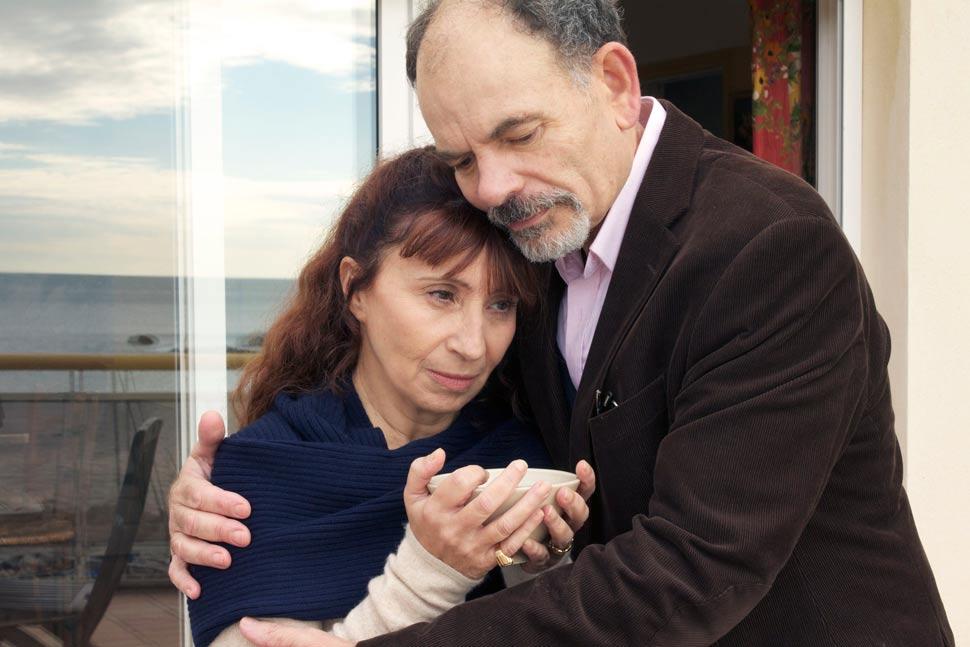France / 107’
language French
cast Ariane Ascaride, Jean-Pierre Darroussin, Gérard Meylan, Jacques Boudet, Anaïs Demoustier, Robinson Stévenin, Yann Tregouët, Geneviève Mnich, Fred Ulysse, Diouc Koma
screenplay Robert Guédiguian, Serge Valletti
cinematographer Pierre Milon
editor Bernard Sasia
production designer Michel Vandestien
costume designer Anne-Marie Giacalone
sound Laurent Lafran
Robert Guédiguian - La Villa

Synopsis
By a little bay near Marseille lies a picturesque villa owned by an old man. His three children have gathered by his side for his last days: Angela, an actress living in Paris, Joseph, who has just fallen in love with a girl half his age, and Armand, the only one who stayed behind in Marseille to run the family’s small restaurant. It’s time for them to weigh up what they have inherited of their father’s ideals and the community spirit he created in this magical place. The arrival, at a nearby cove, of a group of boat people will throw these moments of reflection into turmoil.
Director’s Statement
The Méjean calanque, near Marseille, has always made me think of a theatre. The colorful little houses built into the hills seem to be no more than façades, a viaduct overlooks them and its trains look like child’s toys; the openness towards the sea transforms the horizon into a backdrop, like painted canvases, especially with the winter light, when everyone has gone. It becomes an abandoned set— melancholic and beautiful.
In this open-air “bubble”, a few brothers and sisters, fathers and mothers, friends and lovers exchange tons of past love and love yet to come. All of these men and all of these women share the same feelings: They are at a time of life when they have an acute awareness of time passing, of the world changing. The paths that they had opened up are gradually being sealed off and must constantly be maintained, or new ones must be created.
In this situation, suddenly, something happens that may radically overturn all of these thoughts, a kind of Copernican revolution: children survivors from a wrecked boat are hiding in the hills. They are two brothers and a sister, like an echo of the three protagonists, Angèle, Joseph, and Armand, and that brings a sense of fraternity back into play, since they decide to keep these children with them.
I believe in this encounter. There is something about “globalization” that naturally relates to the future. Though I exaggerate, I’d say that I couldn’t make a film today without talking about refugees: we are living in a world where people are drowning at sea on a daily basis.
I deliberately choose the word “refugees”. I don’t care whether it’s due to climate change, for other reasons, or because of a war—they are coming in search of a shelter, a hearth.
With these three little ones arriving, perhaps the calanque will be revived? Angèle, Joseph, and Armand will stay there with these three children to raise, and they’re going to try to make the restaurant, the hillside community, and their worldview survive. To keep up the connections between a few people and, in that way, maintain peace.

